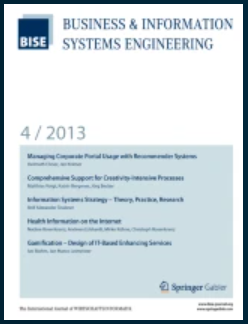Ontological Modeling of the State Economic Development Policy for Cultural Industries
IF 7.4
3区 管理学
Q1 COMPUTER SCIENCE, INFORMATION SYSTEMS
引用次数: 0
Abstract
The article discusses an ontological approach to solving the problem of forming state policy of economic development of cultural and creative industries and the corresponding intellectual-information management systems. The purpose of this article is to develop an effective toolkit (based on ontologies) for making optimal decisions in the field of state regulation of the cultural and creative industries, taking into account the dynamic factors of the external environment. The ontological approach considered in the article assumes the presence of three levels of models: meta-ontology, models of subject areas of cultural and creative industries and models of making appropriate management decisions on the formation of economic development policy of cultural and creative industries. The novelty of the proposed approach lies in the purposeful nature of ontological modeling of such complex system as the state policy of economic development of cultural and creative industries. The system under consideration has certain goals, tasks, resources, processes, factors of influence, risks and other characteristics. These characteristics include, in particular, the structure of the model, the ability to highlight the essential objects of real relations of the considered subject areas, the ability to represent knowledge for the joint work of specialists in computer modeling, the processing of expert knowledge and the generation of management decisions within the framework of the corresponding intellectual-information systems.国家文化产业经济发展政策的本体论建模
本文探讨了一种解决文化创意产业经济发展国家政策形成问题的本体论方法和相应的知识信息管理系统。本文的目的是开发一个有效的工具包(基于本体),以便在考虑外部环境的动态因素的情况下,在文化和创意产业的国家监管领域做出最佳决策。本文考虑的本体论方法假设存在三个层次的模型:元本体论模型、文化创意产业主题领域模型和文化创意产业经济发展政策形成的适当管理决策模型。该方法的新颖之处在于对文化创意产业经济发展的国家政策等复杂系统进行本体论建模的目的性。所考虑的系统具有一定的目标、任务、资源、流程、影响因素、风险等特征。这些特征特别包括模型的结构、突出所考虑的学科领域的真实关系的基本对象的能力、为计算机建模专家的联合工作表示知识的能力、专家知识的处理和在相应的知识信息系统框架内生成管理决策的能力。
本文章由计算机程序翻译,如有差异,请以英文原文为准。
求助全文
约1分钟内获得全文
求助全文
来源期刊

Business & Information Systems Engineering
Computer Science-Information Systems
CiteScore
13.60
自引率
7.60%
发文量
44
审稿时长
3 months
期刊介绍:
Business & Information Systems Engineering (BISE) is a double-blind peer-reviewed journal with a primary focus on the design and utilization of information systems for social welfare. The journal aims to contribute to the understanding and advancement of information systems in ways that benefit societal well-being.
 求助内容:
求助内容: 应助结果提醒方式:
应助结果提醒方式:


